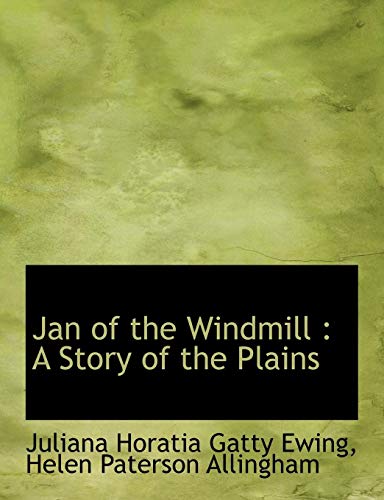-
Jan of the Windmill
Juliana Horatia Gatty Ewing
eBook (, May 11, 2012)This book was converted from its physical edition to the digital format by a community of volunteers. You may find it for free on the web. Purchase of the Kindle edition includes wireless delivery.
-
Jan of the Windmill: A Story of the Plains
Juliana Horatia Gatty Ewing
Paperback (CreateSpace Independent Publishing Platform, Jan. 23, 2016)None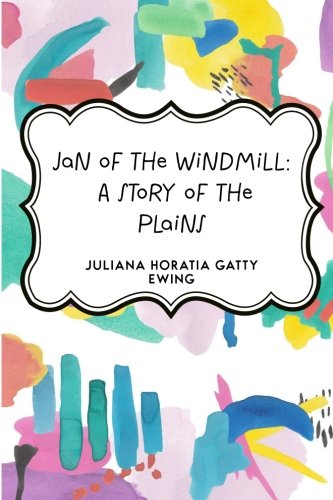
-
Jan of the Windmill
Juliana Horatia Ewing
Paperback (Yesterday's Classics, Feb. 13, 2018)Brought to the windmiller's home as a foundling on a dark and stormy night, the infant Jan soon won his way into the hearts of his new family, especially that of little Abel who served as his nursemaid. Together they lay for hours watching the clouds. Once Abel showed Jan how to draw them in the dirt, he wanted to do nothing else. He drew on slates at school, then as a pig-minder fashioned pictures with colored leaves that blew away in the wind. The schoolmaster encountering him at this occupation befriended him, providing supplies for the budding artist and raising his aspirations. The story begins slowly with rich descriptions and carefully etched characters, then accelerates as the plot twists and turns, and finally gallops to a fine finish fitting for such a talented lad.
-
Jan of the Windmill: A Story of the Plains
Juliana Horatia Gatty Ewing
Paperback (CreateSpace Independent Publishing Platform, July 11, 2014)So the windmiller might have said, if he had been in the habit of putting his thoughts into an epigrammatic form, as a groan from his wife and a growl of thunder broke simultaneously upon his ear, whilst the rain fell scarcely faster than her tears. It was far from mending matters that both storms were equally unexpected. For eight full years the miller’s wife had been the meekest of women. If there was a firm (and yet, as he flattered himself, a just) husband in all the dreary straggling district, the miller was that man. And he always did justice to his wife’s good qualities, - at least to her good quality of submission, - and would, till lately, have upheld her before any one as a model of domestic obedience. From the day when he brought home his bride, tall, pretty, and perpetually smiling, to the tall old mill and the ugly old mother who never smiled at all, there had been but one will in the household. At any rate, after the old woman’s death. For during her life-time her stern son paid her such deference that it was a moot point, perhaps, which of them really ruled. Between them, however, the young wife was moulded to a nicety, and her voice gained no more weight in the counsels of the windmill when the harsh tones of the mother-in-law were silenced for ever.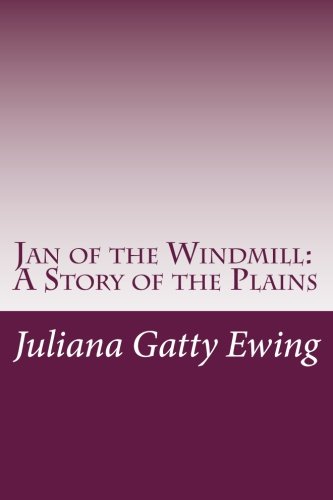
-
Jan of the Windmill: A Story of the Plains
Juliana Horatia Ewing
Hardcover (A. L. Burt Company, Sept. 3, 1876)None
-
Jan of the windmill: A story of the plains
Juliana Horatia Gatty Ewing
Hardcover (Burt, Sept. 3, 1884)None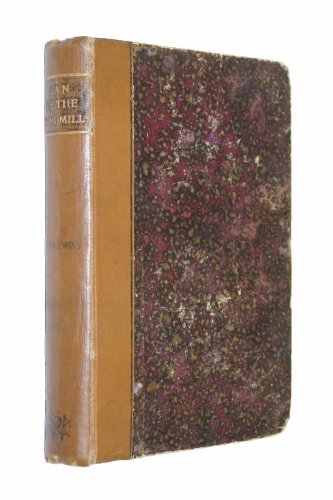
-
Jan of the windmill. A story of the plains. By: Juliana Horatia Ewing:
Juliana Horatia Ewing
Paperback (CreateSpace Independent Publishing Platform, Feb. 9, 2018)Juliana Horatia Ewing (née Gatty) (3 August 1841 – 13 May 1885) was an English writer of children's stories. She displayed sympathetic insight into children's lives, admiration for things military, and strong religious faith. Youth and marriage: Known as Julie, she was the second of ten children of the Reverend Alfred Gatty, vicar of Ecclesfield in Yorkshire, and Margaret Gatty, who was herself a children's author. The children were educated mainly by her mother, but Julie was often the driving force behind their various activities: drama, botany etc. Later she was responsible for setting up a village library in Ecclesfield and helped out in the parish with her three sisters. Early stories of hers appeared in Charlotte Yonge's magazine Monthly Packet. On 1 June 1867, she married Major Alexander Ewing (1830–1895) of the army pay department. He was also a keen churchgoer, who shared his wife's interest in literature. Within a week of their marriage, the Ewings left England for Fredericton, New Brunswick, Canada, where he had received a new posting. They remained there for two years, before returning to England in 1869 and spending eight years in the army town of Aldershot. Although her husband was sent overseas again, to Malta in 1879 and Sri Lanka in 1881, Ewing's poor health would not allow her to accompany him. The Ewings moved to Trull, Somerset, on his return in 1883, and in 1885, to Bath, in the hopes that the change of air would do her good. However, her health continued to deteriorate, and after two operations, she died there on 13 May 1885.She was given a military funeral at Trull three days later. Her sister Horatia Katharine Frances Gatty (1846–1945) published a memorial of Julie's life and works which includes a publication history of her stories. A later selection includes some of Julie's letters and drawings about Canada. A biography by Gillian Avery appeared in 1961. "Child-novels" Roger Lancelyn Green calls her works the "first outstanding child-novels" in English literature. Her works are notable for their sympathetic insight into child life, their admiration for things military, and their reflection of her strong Anglican faith. They include Mrs. Overtheway's Remembrances (1869), A Flat Iron for a Farthing (1872), Six to Sixteen (1875), Jackanapes (1884), Daddy Darwin's Dovecot (1884),and The Story of a Short Life (1885). The latter story inspired Grace Kimmins to start the Guild of the Poor Brave Things to help children with disabilities in London. Grace (and later Ada Vachell took their motto Laetus sorte mea (Happy in my lot) from Ewing's book. Rudyard Kipling claimed to know her novel Jan of the Windmill (1872-3, 1876) almost by heart. He wrote in his autobiography, Something of Myself, "One [book] I have still, a bound copy of Aunt Judy's Magazine of the early 'seventies, in which appeared Mrs. Ewing's Six to Sixteen. I owe more in circuitous ways to that tale than I can tell. I knew it, as I know it still, almost by heart. Here was a history of real people and real things."Her story The Brownies (1865) gave the Baden-Powells the idea and the name for the junior level of the Girl Guides. Another admirer of her work was E. Nesbit. A talented artist herself, her works were frequently illustrated by such notables as George Cruikshank and Randolph Caldecott. She was also the editor of a number of magazines which published short stories for children, such as the Nursery Magazines from 1856 onwards, the Monthly Packet and the monthly Aunt Judy's Magazine from 1866..................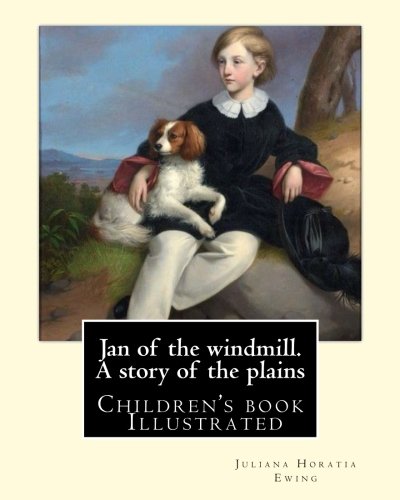
-
Jan of the Windmill
Juliana Horatia Ewing
Paperback (CreateSpace Independent Publishing Platform, Dec. 31, 2017)The FICTION & PROSE LITERATURE collection includes books from the British Library digitised by Microsoft. The collection provides readers with a perspective of the world from some of the 18th and 19th century’s most talented writers. Written for a range of audiences, these works are a treasure for any curious reader looking to see the world through the eyes of ages past. Beyond the main body of works the collection also includes song-books, comedy, and works of satire.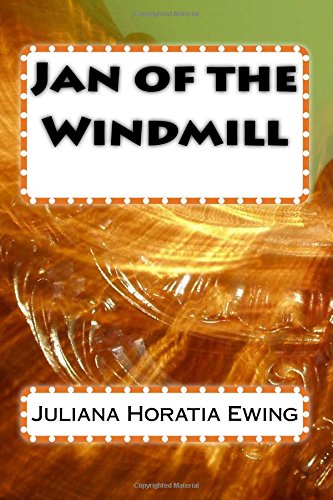
-
Jan of the Windmill: a Story of the Plains
Juliana Horatia Gatty Ewing
Paperback (HardPress Publishing, Aug. 1, 2012)Unlike some other reproductions of classic texts (1) We have not used OCR(Optical Character Recognition), as this leads to bad quality books with introduced typos. (2) In books where there are images such as portraits, maps, sketches etc We have endeavoured to keep the quality of these images, so they represent accurately the original artefact. Although occasionally there may be certain imperfections with these old texts, we feel they deserve to be made available for future generations to enjoy.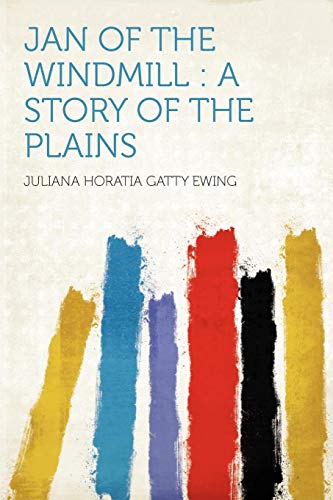
-
JAN OF THE WINDMILL
Juliana Horatia. Illustrated by M.V. Wheelhouse. Ewing
Paperback (G. Bell & Sons Ltd., March 15, 1909)None
-
Jan of the windmill: A story of the plains
Juliana Horatia Gatty Ewing
Hardcover (G. Bell & Sons, Sept. 3, 1890)None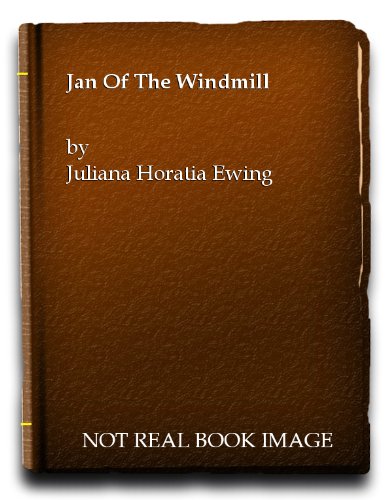
-
Jan of the Windmill: A Story of the Plains
Juliana Horatia Gatty Ewing, Helen Paterson Allingham
Paperback (BiblioLife, Oct. 29, 2009)This is a pre-1923 historical reproduction that was curated for quality. Quality assurance was conducted on each of these books in an attempt to remove books with imperfections introduced by the digitization process. Though we have made best efforts - the books may have occasional errors that do not impede the reading experience. We believe this work is culturally important and have elected to bring the book back into print as part of our continuing commitment to the preservation of printed works worldwide.